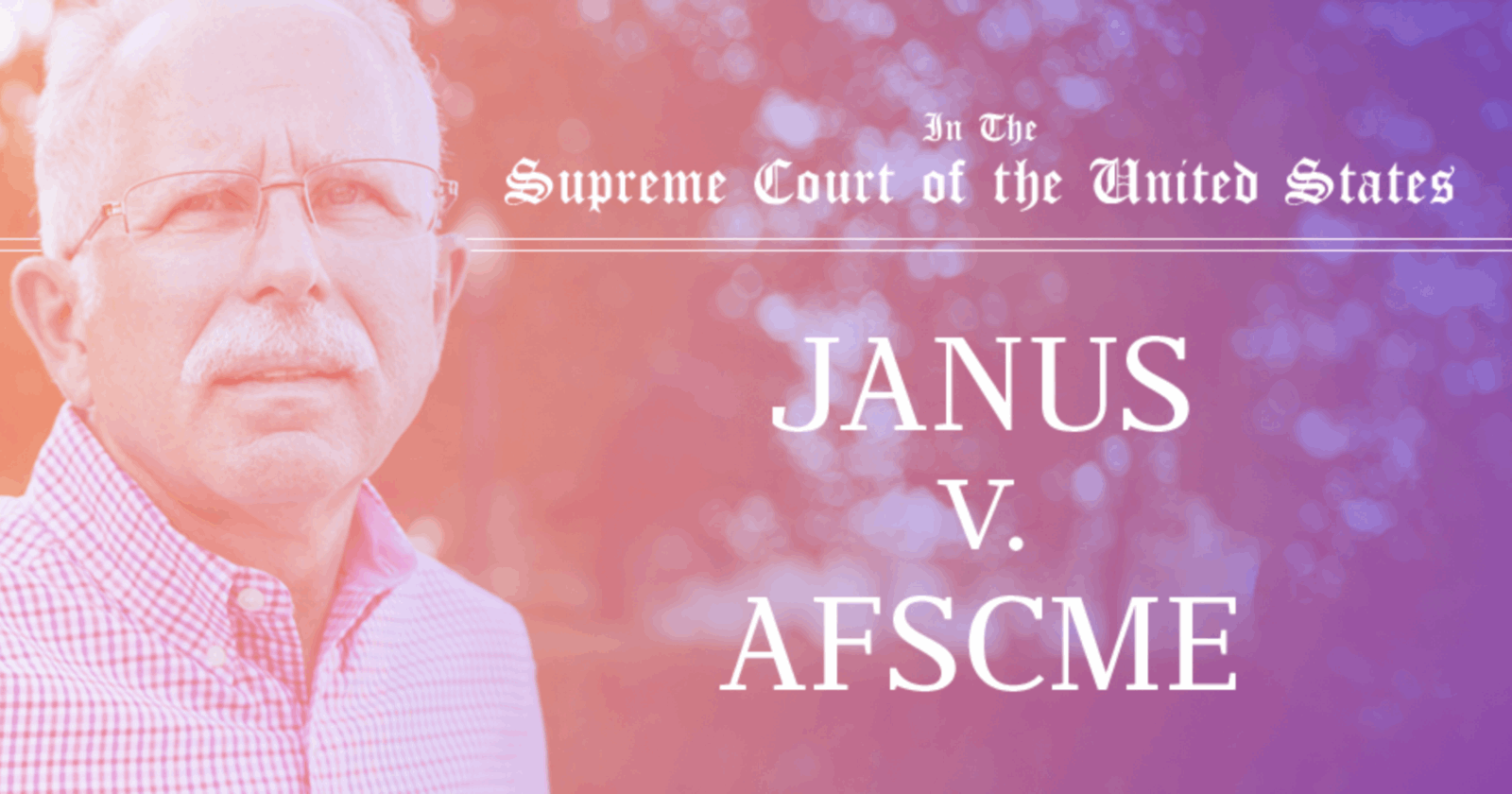The Kansas Legislature is considering bills that will bring the rights of public employees in line with a recent U.S. Supreme Court ruling. Senate Bill 361 and House Bill 2586 give public employees the ability to immediately cease payment of dues to a labor union whenever they choose; the bills also require an affirmative annual opt-in to join a union, and an annual reminder notice informing public employees of their constitutional right to leave the union at any time. The bill is in reaction to the SCOTUS ruling in Janus v. American Federation of State, County, and Municipal Employees Council.
Mark Janus, the plaintiff in the landmark SCOTUS decision, appeared in person to testify in support of both bills and explained why he took his case to the Supreme Court.

“I fought all the way to the Supreme Court to protect my first amendment rights, my freedom of speech and my freedom of association,” said Janus.
The Janus decision had two major findings. The first is that public employees cannot be forced to join a union, as a result, public employment is in essence right to work sectors regardless of a state “right-to-work” status. As Kansas is already a right-to-work state the state was already in line with this finding.
The second finding in the decision impacts Kansas public employees. It is referenced in Janus as “evidence of affirmative consent.” According to F. Vincent Vernuccio, Senior Fellow with the Mackinac Center for Public Policy, “Janus essentially had an opt-in provision saying that public employees should have the ability to opt-in to paying union dues and for employers to collect those dues they need evidence of affirmative consent.”
And if a public employee withdraws consent to withhold dues, the employer must honor that wish upon receiving notice. But under current Kansas law, dues withholding authorizations must be in effect for at least six months; the state’s largest teacher union, KNEA, only allows teachers to resign in August.
As Vernuccio notes, this is at the heart of the second finding in the Janus ruling.
“There is no clock or calendar on exercising your constitutional right,” said Vernuccio.
“All we are doing with this bill which has been proposed is put into effect what the supreme court has said,” said Janus.
In regards to public unions, Janus noted that these unions, “use taxpayer money, because who pays the salary for public sector workers? Taxpayers.”
Janus explained that given the political agendas of public employee unions from taxpayer-funded jobs. The consequence of this is that taxpayers are funding union political action committee which does not have taxpayers interest at heart and in reality could actively work against them. By disallowing public employees to leave public employee unions at any time as ruled on in Janus, the state of Kansas does open the state up to lawsuits from public sector employees.
“Employees saying that the city, district and school districts are improperly collecting dues, that they didn’t let them out when they wished, that they are violating their first amendment rights, that could definitely open the state or locality up to legal issues,” said Vernuccio.
In addition to Mark Janus, proponents included former California school teacher Rebecca Friedrichs, Elizabeth Patton for Americans for Prosperity, and Dave Trabert for Kansas Policy Institute (KPI owns the Sentinel). Multiple unions submitted written testimony in opposition to bringing state law into compliance with Janus, but no one testified in person. Still, hearings in the House and Senate became a bit contentious at times during questioning of the proponents. You can listen to the full audio of the Senate hearing here.


